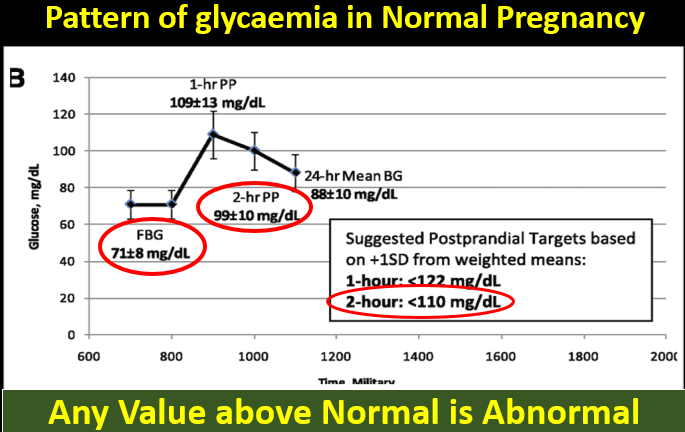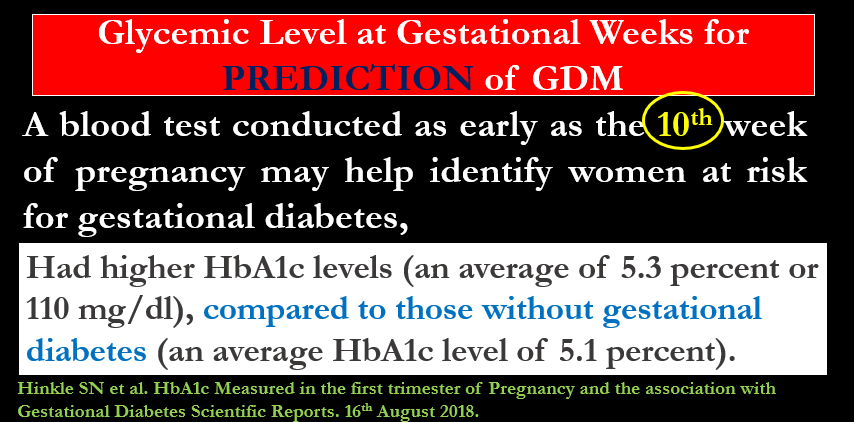Editorial Review: Rajesh Jain1
1Corresponding Author: Dr. Rajesh Jain, MD Chair (Diabetes Asia under JHRC); 108 B Gandhi gram, Vinobha Nagar, Kanpur-208007, India. Email: [email protected]; Rajesh Jain1. Review of TOGOBM study. Diabetes Asia Journal.2024; 1(2):35-37. https://doi.org/10.62996/daj.30112024
Simmons D, Immanuel J, Hague WM, Teede H, Nolan CJ, Peek MJ, Flack JR, McLean M, Wong V, Hibbert E, Kautzky-Willer A, Harreiter J, Backman H, Gianatti E, Sweeting A, Mohan V, Enticott J, Cheung NW; TOBOGM Research Group. Treatment of Gestational Diabetes Mellitus Diagnosed Early in Pregnancy. N Engl J Med. 2023 May 5. doi: 10.1056/NEJMoa2214956
In the TOBGM study, Intervention started very late, with OGTT performed an average of 15.6 weeks. This is why it results in a modest reduction in primary outcome in the immediate treatment arm (24.9% Vs. The control group (30.5%) adjusted risk reduction by 5.6%. OGTT was performed in less than 14 weeks in 23.2% of Women only, and most of the women were beyond the 14th week at entry level in both the Intervention and control groups. Insulin and Metformin use was more in the Treatment arm than in the control arm, 58.1% vs. 41.4% and 23.6% Vs. 10.4%, respectively. Interestingly, more benefits were seen in less than the 14th week of pregnancy.
Our theory says that if a Diagnosis could have been made in the 8th week by a Postprandial Blood Glucose value threshold of 110 mg/dl and treatment with MNT and Metformin 250 mg Two times to maintain Postprandial Blood glucose at 2 hours with less than 110 mg/dl would have resulted in a more robust reduction in Neonatal and Maternal outcomes. This theory is based on Dr. V Seshiah’s” Path Breaking Concept for Primordial Prevention of Gestational Diabetes and its sequelae. Prof Seshiah is a well-known Expert on Gestational Diabetes and received the IDF lifetime achievement award and Padmashri from Govt of India for his work in GDM.
Diabetes mellitus in recent years has become a relentlessly evolving pandemic. Measures for the screening and early detection of diabetes are practiced worldwide. However, considering the ever-increasing magnitude of the problem, the current efforts should primarily focus on primordial diabetes prevention.
A ray of hope for preventing the development of diabetes in an individual arises from the concept that many adult-onset diseases have already been programmed while the individual is still in utero. In women with hyperglycemia in pregnancy, maternal hyperglycemia results in fetal hyperinsulinemia, leading to increased fetal adiposity insulin resistance and diabetes in adulthood. We have pointed out that the fetal beta-cells start secreting insulin at 10-11 weeks of pregnancy, and fetal hyperinsulinemia persists with maternal hyperglycemia in a pregnant woman who would develop gestational diabetes.
Considering the fetal glucose-steal phenomenon and the fetal renal threshold for glucose, we have suggested a two-hour post-prandial blood-glucose (PPBG) value of >110 mg/dL as the cut-off for predicting gestational diabetes in the early weeks of pregnancy. Furthermore, we have emphasized using metformin in addition to medical nutrition therapy in the early weeks to maintain PPBG around 110 mg/dL to prevent gestational diabetes.
We recommend universal screening of all pregnant women during the early weeks of the first trimester. We put forward that a two-hour PPBG of >110 mg/dl during the 10th-11th week of pregnancy would predict the risk of gestational diabetes in the pregnant woman. We suggest early testing and intervention to prevent the development of fetal hyperinsulinemia as a primordial prevention approach for diabetes1

Figure 1. The pattern of glycemia in normal pregnancies and recommended therapeutic targets for post-prandial blood glucose in hyperglycemia-in-pregnancy (HIP). Adapted from Hernandez et al., 2011 [9], under the Creative Commons License http://creativecommons.org/licenses/by-nc-nd/3.0/)
A blood test conducted as early as the 10th week of pregnancy may help identify women at risk for gestational diabetes; if> 110 mg/dl, MNT and metformin 250 mg/bd must be started and continued. The target glycemia to be obtained is PPBS 99 ± 10 mg/dl. Metformin is Safe as the Embryonic stage is over by the 8th week.
2To use metformin as an adjunct or alternative to insulin in the preconception period and during pregnancy, when the likely benefit from improved blood glucose control outweighs the potential for harm.

Figure 2 Glycemic level at Gestational Weeks for Prediction of GDM
3Administration of metformin after the 12th week will not prevent GDM.
PPBS >110 mg/dl at the first-week Insulin resistance physiologically plays a vital role in the changes in carbohydrate, lipid, and amino acid metabolism that facilitate the fetus’s anabolism and nutrition.
The idea is to test for glucose tolerance in the 8th week (2 months). Why? Prediction of GDM is 2hr PPBS > 110mg/dl at 10th week. Hence, in the 8th week, PPBS has to be estimated. Because…If PPBS is > 110 mg/dl in the 8th week, a grace period of 2 weeks is available to attain PPBS < 110 mg/dl in the 10th week.
The aim is to maintain Maternal 2-hr Plasma Glucose 99 ± 10 mg/dl throughout pregnancy from Conception to Confinement to Prevent the Transgenerational Transmission of Diabetes.
The preliminary data from India show the benefit of early treatment of GDM, as per the RCT conducted in 8 centers across different states by the DIPSI Diabetes in Pregnancy Study Group in India.
1. Seshiah V, Bronson SC, Balaji V, Jain R, Anjalakshi C. Prediction and Prevention of Gestational Diabetes Mellitus and Its Sequelae by Administering Metformin in the Early Weeks of Pregnancy. Cureus. 2022 Nov 15;14(11):e31532. doi: 10.7759/cureus.31532. PMID: 36540507; PMCID: PMC9754731.
2. NICE Guidelines. 2nd February 2015
3. Valdés E, Sepúlveda-Martínez A, Candia P, Abusada N, Orellana R, Manukian B, Cuellar E. Metformin as a prophylactic treatment of gestational diabetes in pregnant patients with pregestational insulin resistance: A randomized study. J Obstet Gynaecol Res. 2018 Jan;44(1):81-86. Doi: 10.1111/jog.13477
4. Hernandez TL, Friedman JE, Van Pelt RE, Barbour LA. Patterns of Glycemia in Normal Pregnancy:
Should the current therapeutic targets be challenged? Diabetes Care. 2011 Jul;34(7):1660-8
- Acknowledgment
Not applicable
- Funding
Not applicable
- Informed Consent
Not applicable
- Conflict of Interest Statement
All the authors declared “No Conflict of Interest” with this publication.
The article is Open Access and is licensed under a Creative Commons Attribution 4.0 International License; visit http://creativecommons.org/licenses/by/4.0/.
- DOI: 10.62996/daj.30112024
- Cite this Article
Rajesh Jain1. Review of TOGOBM study. Diabetes Asia Journal.2024; 1(2):35-37. https://doi.org/10.62996/daj.30112024

